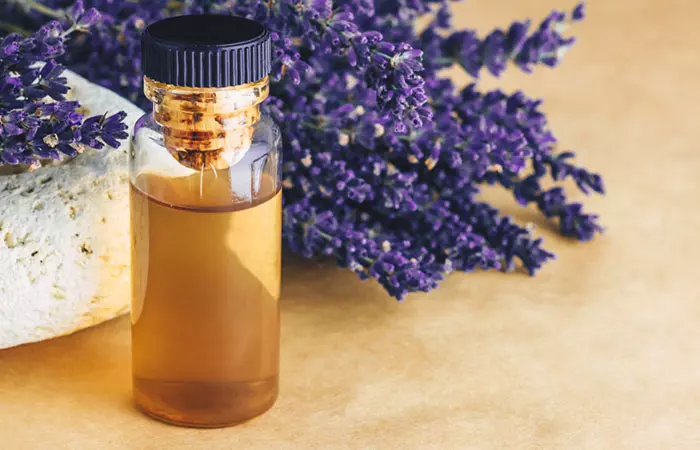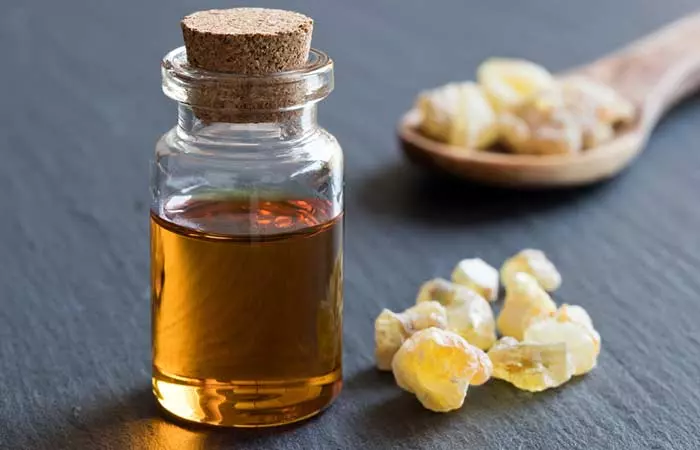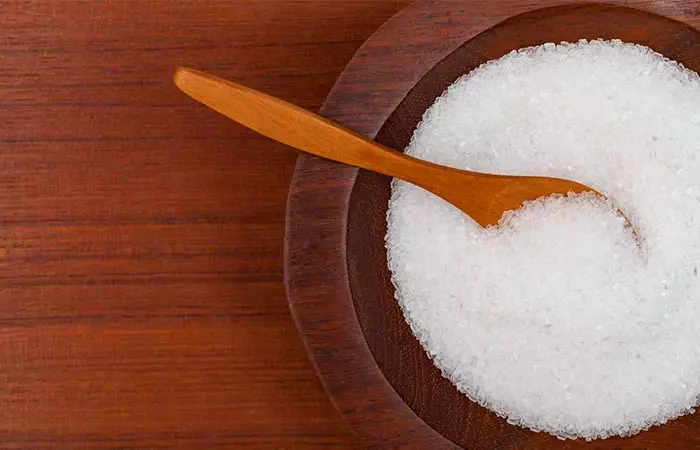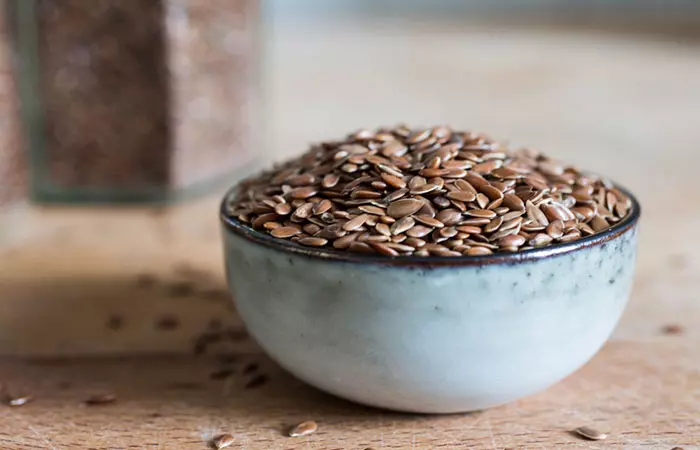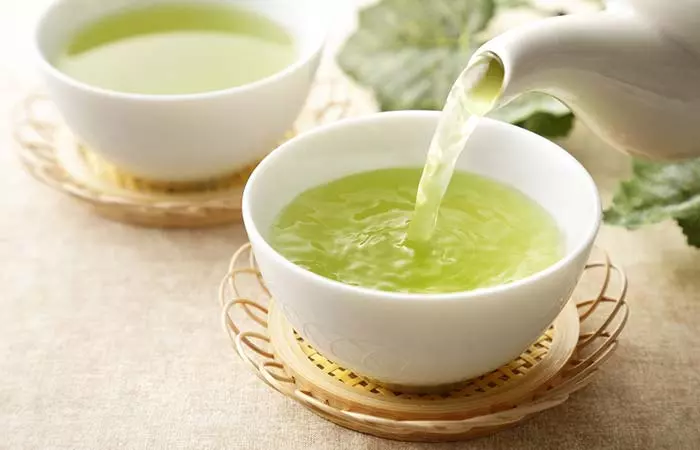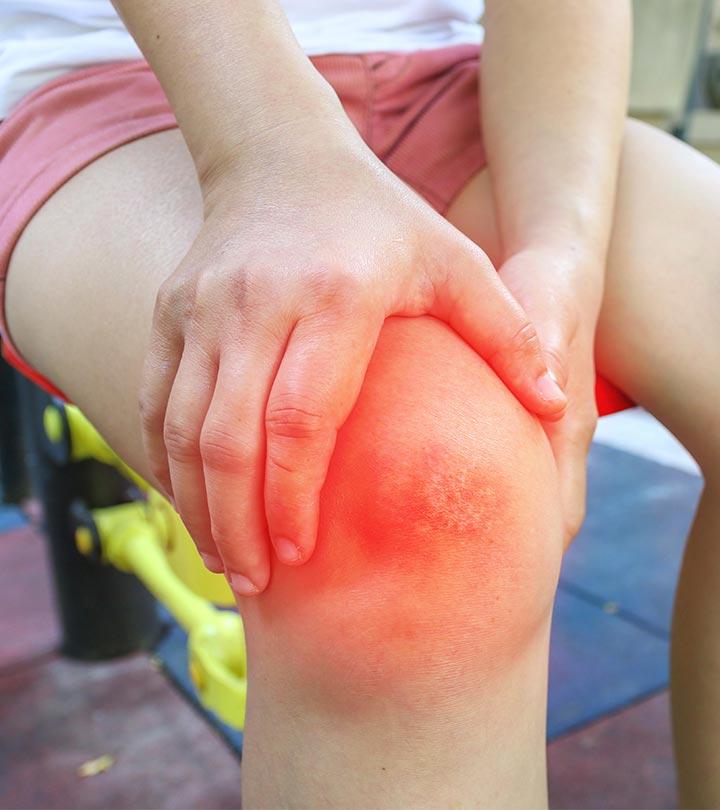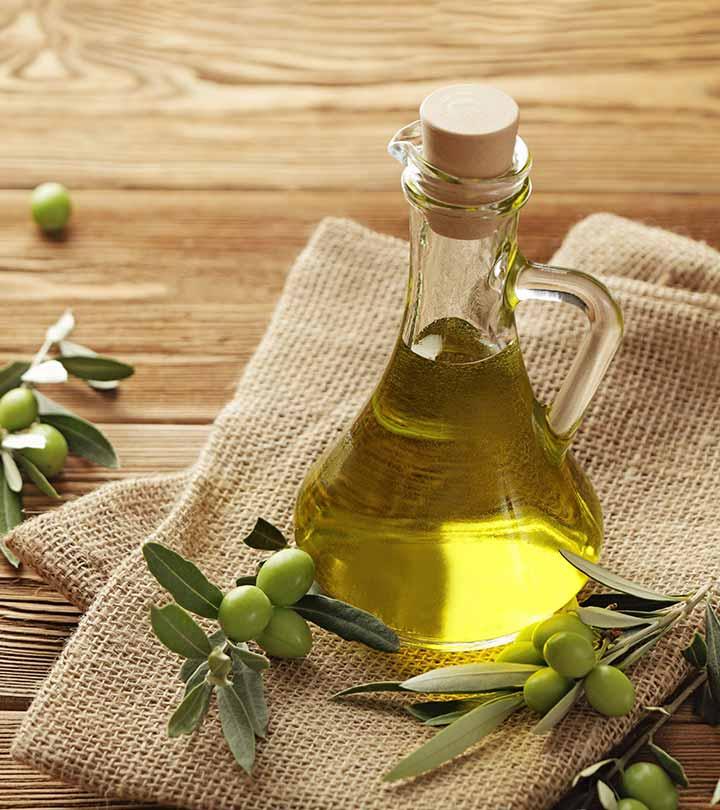Home Remedies For Lupus: 10 Ways To Manage It Naturally
Vitamin supplements to essential oils, there are a number of ways to manage this skin condition.

Image: Shutterstock
Lupus occurs when the body is inflamed internally, leading to skin rashes. Lupus is a chronic autoimmune disorder that requires medical attention, but natural remedies and traditional medicine for lupus can ease some symptoms. Women are more likely than men to develop this disorder, and it mostly affects African-Americans and Hispanics (1).
Lupus is notoriously difficult to diagnose, as its symptoms resemble those of many different illnesses. Many individuals may have to try several unsuccessful medications before an accurate diagnosis is reached. In a few cases, it may take years before a proper diagnosis is made. If you are looking for home remedies and herbal medicines to manage the symptoms, scroll down to check them out.
In This Article
What Is Lupus?
Lupus is an autoimmune disorder that causes the body’s immune system to become hyperactive and strike healthy tissues. This condition is characterized by symptoms like swelling, inflammation, and damage to the skin, brain, joints, kidneys, heart, lungs, and blood.
One of the main symptoms of lupus is a facial rash that unfolds across both cheeks and closely resembles the wings of a butterfly. This symptom is quite prevalent in many cases of lupus that have been reported, but not all.
An online survey conducted on 4375 SLE patients from across 35 European countries found that 81.8% of respondents reported that the disease affected their joints while 59.4% said it affected their skin. Furthermore, 85% of the participants reported fatigue and 9.1% reported mental health issues due to Lupus.
 Trivia
TriviaThe exact cause of lupus is yet to be discovered. However, it mainly results from your immune system attacking the healthy tissues in your body. Let’s look into the cause of lupus right below.
What Causes Lupus? What Are Its Risk Factors?
Lupus is often thought to develop in people with a genetic predisposition to the disease, who come in contact with potential environmental triggers. Such triggers may include:
- Sunlight
- Infections
- Certain medications
Some factors that may increase your risk of developing lupus are:
- Gender – It is more common in women.
- Age – It can affect people of any age but is more common in those between 15 and 45 years.
- Race – It is found to be more common in Asian-Americans, Hispanics, and African-Americans.
The signs and symptoms associated with lupus are quite similar to those of other ailments. They may vary depending on the affected body system.
What Are The Signs And Symptoms Of Lupus?
The symptoms of lupus can occur gradually or suddenly, may be mild or severe, and may also be temporary or permanent. Most people with lupus develop mild symptoms that may flare-up for a while before improving or even completely disappearing for some time.
The common signs and symptoms that surface with lupus are:
- Fever
- Fatigue
- Pain, stiffness, and swelling of joints
- A butterfly-shaped rash across both cheeks and the nose
- Rashes on different body parts
- Appearance of lesions that worsens post-exposure to the sun
- Breathing difficulty or shortness of breath
- Dry eyes
- Pain in the chest
- Memory loss or confusion
- Headaches
- Fingers or toes that turn blue while stressing or when exposed to cold (also termed as Raynaud’s phenomenon)
Michel Janse, a YouTuber, shares her struggle with lupus in one of her vlogs. She recounts when she saw the first signs: “I was sick and woke up the next day with a rash – sometimes, there would be tiny little bumps all over my stomach, back, or chest. My fingernails started to fall off, and my toes turned blue (i).”
Lupus needs immediate medical attention and complementary therapies like homeopathy to prevent any potential complications. The risks and side effects associated with it are discussed below.
Risks And Side Effects
Lupus can lead to severe complications, such as:
- Kidney damage
- Memory problems
- Anemia
- Blood clotting
- Pleurisyi A condition when large tissues around the lungs become inflamed and cause immense pain during breathing.
- Pericarditisi A condition when saclike tissue around the heart swells up and causes irritation and chest pain when one rubs against the other.
- Heart attack
The other serious side effects of lupus include:
- Infections due to a weak immune system
- Cancer
- Avascular necrosis or bone tissue death
- Pregnancy complications, such as miscarriage
Treating lupus is mainly aimed at managing its signs and symptoms. While there are several anti-inflammatory and immunosuppressive medications that can help to manage the symptoms, most of them come with side effects. Therefore, many people are looking at alternative medicine to manage the condition. The following are the best home remedies that can help you manage lupus while also improving your quality of life.
10 Natural Remedies To Manage Lupus
1. Vitamin Supplements
Introduction of vitamins E and D in lupus patients was found to help with the progression of the disease. Vitamin D can ameliorate inflammatory and hemostatici The body responds to an injury by clotting the blood of an affected area, disrupting the normal blood flow of the body. markers associated with systemic lupus erythematosus (2). Vitamin E can suppress the production of autoantibodies, which are involved in the development of systemic lupus erythematosus (3).
2. Essential Oils
a. Lavender Oil
You Will Need
- 2-3 drops of lavender oil
- 1-2 tablespoons of coconut oil
What You Have To Do
- Add two to three drops of lavender oil to one or two tablespoons of coconut oil.
- Mix well and apply the mixture to the affected area.
- You can also breathe in the aroma of lavender oil using a diffuser.
How Often You Should Do This
You may do this once daily.
Why This Works
The analgesici A pain-relieving medication used to treat rashes, swelling, inflammation and other irritants to the body. and anti-inflammatory properties of lavender oil can help in soothing the rashes associated with lupus while also relieving pain (4).
b. Frankincense Oil
You Will Need
- 1 drop of therapeutic-grade certified organic frankincensei A kind of gum-like resin that comes from the Boswellia tree used for skin care and aromatherapy purposes. oil
- 1 glass of drinking water
What You Have To Do
- Add a drop of therapeutic-grade certified organic frankincense oil to a glass of water.
- Mix well and consume.
How Often You Should Do This
You may drink this mixture 2-3 times daily for best results.
Why This Works
Frankincense oil possesses strongimmunostimulatingi A medication that reduces unwanted overactivation of the immune system triggered by exposure to pathogens. and anti-inflammatory activities (5), (6). These activities can help in preventing the deterioration of lupus symptoms.
3. Coconut Oil
You Will Need
Virgin coconut oil (as required)
What You Have To Do
- Take a little virgin coconut oil in your palm.
- Massage the oil gently onto the affected areas of your body.
- Leave it on until it dries.
How Often You Should Do This
You may do this 1-2 times daily.
Why This Works
Virgin coconut oil exhibits significant anti-inflammatory and analgesic properties that can soothe the inflamed rashes that often accompany lupus (7).
4. Epsom Salt
You Will Need
- 1 cup of Epsom salt
- Water
What You Have To Do
- Add a cup of Epsom salt to a tub filled with water.
- Allow the salt to dissolve completely.
- Soak in the Epsom bath for 15-20 minutes.
How Often You Should Do This
You must do this once daily.
Why This Works
The presence of magnesium in Epsom salt imparts anti-inflammatory properties to it, which can help alleviate the inflammatory symptoms of lupus (8).
5. Tulsi Or Holy Basil
You Will Need
- ¼ cup of holy basil leaves
- 1 cup of hot water
What You Have To Do
- Wash the holy basil leaves thoroughly with water.
- Press the leaves against the cup using a spoon.
- Add a cup of hot water to the leaves and
- cover it immediately with a saucer.
- Allow the leaves to steep for at least 5 minutes.
- Drink the warm tea.
How Often You Should Do This
You may drink this 1-2 times daily.
Why This Works
Theimmunomodulatoryi A substance that suppresses the immune system to treat inflammation, infection and even help fight cancer. nature of holy basil can benefit those battling lupus as it can help strengthen their overall immunity (9).
6. Flaxseed
You Will Need
1 tablespoon of ground flaxseed
What You Have To Do
Add a tablespoon of ground flaxseed to your favorite cereal or salad.
How Often You Should Do This
You can consume 1-2 tablespoons of flaxseed daily.
Why This Works
Flaxseed is a rich source of alpha-linolenic acid (alpha-LA) that possess anti-atherogenici A genetic mutation that helps the body protect itself from the formation of plaques in the arteries. properties. It also contains lignans, which prevent the activation of platelet-activating factor receptors, thus preventing inflammation. These properties of flaxseed can help improve renal function associated with lupus nephritis (10).
7. Green Tea
You Will Need
- 1 teaspoon of green tea
- 1 cup of hot water
What You Have To Do
- Add a teaspoon of green tea to a cup of hot water.
- Steep for 5 minutes and strain.
- Drink the warm tea.
How Often You Should Do This
You may drink green tea 1-2 times daily.
Why This Works
Daily consumption of green tea can help in managing the symptoms of lupus and also improve certain aspects of the patient’s quality of life (11).
8. Turmeric
You Will Need
- 1 teaspoon of turmeric powder
- 1 glass of hot milk
What You Have To Do
- Add a teaspoon of turmeric powder to a glass of hot milk.
- Stir well until the turmeric powder dissolves completely.
- Drink the warm concoction.
How Often You Should Do This
You may drink this once daily.
Why This Works
The active component of turmeric is curcumin. Curcumin reduces the proliferation of peripheral blood mononuclear cells in lupus nephritis patients and suppresses the activation of the enzyme that causes inflammation (12).
9. Ginger
You Will Need
- 1 inch of sliced ginger
- 1 cup of hot water
What You Have To Do
- Add an inch of sliced ginger to a cup of water.
- Bring it to a boil in a saucepan.
- Simmer for 5 minutes and strain.
- Drink the warm tea.
How Often You Should Do This
You may drink ginger tea twice daily.
Why This Works
The immunomodulatory and anti-inflammatory nature of ginger can work wonders in managing lupus and its inflammatory symptoms (13).
In addition to trying out these remedies for natural healing, you also need to follow a few tips to prevent flare-ups and boost holistic health.
10. Fish Oil Supplements
Research suggests that the omega-3 fatty acids found in fish oil, particularly docosahexaenoic acid (DHA) and eicosapentaenoic acid (EPA) may possess anti-inflammatory properties that can benefit individuals with lupus. These healthy fats may help regulate the immune system, reducing the excessive inflammation common in lupus patients (14), (15), (16). Fish oil also demonstrated the potential to reduce triglycerides and VLDL cholesterol and increase HDL cholesterol in people with lupus (17). While fish oil supplements may not replace standard medical treatments, incorporating them into a balanced diet could offer some relief from lupus symptoms. Always consult a doctor before adding supplements to your diet.
 Quick Tip
Quick TipHow To Prevent Lupus
You can’t prevent lupus, but you can surely avoid the triggers that might result in flare-ups and worsening of your condition. Do the following:
- Limit your exposure to the sun.
- Always wear a sunblock with SPF 70 or more while going out.
- Avoid medications that may trigger further sensitivity to sunlight.
- Manage your stress by practicing yoga or meditation.
- Avoid close contact with people who are ill.
- Get enough sleep and rest.
Infographic: Top 5 Home Remedies To Manage Lupus
Lupus is a common autoimmune disorder that affects millions of people. While this inflammatory disease cannot be treated overnight, there are various ways to reduce its symptoms and alleviate the discomfort it causes to some extent. Check out the infographic below for 5 easy home treatments for managing lupus.

Illustration: StyleCraze Design Team
Lupus is an autoimmune disease that makes your immune system hyperactive. It causes inflammation, swelling, and damage to the skin, heart, kidneys, and brain. Certain medications, infections, and sunlight may trigger lupus. However, certain remedies from naturopathy and integrative medicine for lupus can help. Taking vitamin and dietary supplements and using essential oils, coconut oil, Epsom salt, and tulsi or holy basil may help manage lupus. In addition, limiting your exposure to the sun, avoiding medications that trigger sensitivity, and managing stress may help prevent this condition. But if you still experience the symptoms associated with lupus despite the home remedies, consult your doctor without delay.
Frequently Asked Questions
Are bananas good for lupus?
Bananas are rich in potassium and hence should be consumed in moderation or after consultation with a healthcare provider by individuals with lupus.
What foods trigger lupus flare ups?
Garlic, foods from the nightshade family like tomatoes and potatoes, processed foods, refined sugars, and alfalfa sprouts are known to cause lupus flareups.
Does drinking water help lupus?
Yes, drinking plenty of water may help with digestive issues associated with lupus and facilitate the elimination of toxins from the body.
Are eggs good for lupus?
Yes, eggs are good for lupus as they are nutrient-rich and safe to consume on a lupus diet.
Does lupus make you sleep a lot?
Fatigue is one of the most common and persistent symptoms of lupus. The fatigue may lead to daytime sleepiness or excessive sleep.
How do you know when lupus is getting worse?
Lupus may be getting worse if symptoms worsen or there are new symptoms such as appetite loss, achy or swollen joints, hair loss, rashes, new sores in the nose or mouth, or increased fatigue. It is advised to contact your healthcare provider in this case.
Key Takeaways
- Lupus is characterized by rash, swelling, inflammation, and damage to kidneys, heart, lungs, brain, etc.
- This condition can be managed effectively with early diagnosis and treatment.
- With medications having their share of side effects, homeopathy, naturopathy, and home remedies involving ingredients like essential oils, Epsom salt, green tea, etc. are gaining popularity.
- Prevention is better than cure. So, avoid excess exposure to sunlight and certain medications.

Image: Stable Diffusion/StyleCraze Design Team
Learn about the top 12 home remedies for managing lupus rash! In this video, get tips to effectively reduce inflammation and soothe skin irritation caused by it. Watch it now!
Personal Experience: Source
StyleCraze's articles are interwoven with authentic personal narratives that provide depth and resonance to our content. Below are the sources of the personal accounts referenced in this article.
i. My Lupus Diagnosis Story (Symptoms, Testing, Treatment)https://www.youtube.com/watch?v=Z2AWnrlkon4
References
Articles on StyleCraze are backed by verified information from peer-reviewed and academic research papers, reputed organizations, research institutions, and medical associations to ensure accuracy and relevance. Read our editorial policy to learn more.
- “Let’s Make Lupus Visible!” CDC
- “Role of vitamin D deficiency in systemic lupus erythematosus incidence and aggravation.” Autoimmunity Highlights, US National Library Of Medicine.
- “The efficacy of vitamin E against oxidative damage and autoantibody production in systemic lupus erythematosus: a preliminary study.” Clinical Rheumatology, US National Library Of Medicine.
- “Antioxidant, analgesic and anti-inflammatory effects of lavender essential oil.” Anais da Academia Brasileira de Ciências, US National Library Of Medicine.
- “Chemistry and immunomodulatory activity of frankincense oil.” Zeitschrift für Naturforschung C – A Journal of Biosciences, US National Library Of Medicine.
- “Frankincense–therapeutic properties.” Advances in Hygiene and Experimental Medicine, US National Library Of Medicine.
- “Anti-inflammatory, analgesic, and antipyretic activities of virgin coconut oil.” DescriptionPharmaceutical Biology, US National Library Of Medicine.
- “Magnesium Decreases Inflammatory Cytokine Production: A Novel Innate Immunomodulatory Mechanism” Journal Of Immunology, US National Library Of Medicine.
- “Double-blinded randomized controlled trial for immunomodulatory effects of Tulsi (Ocimum sanctum Linn.) leaf extract on healthy volunteers.” Journal of Ethnopharmacology, US National Library Of Medicine.
- “Flaxseed: a potential treatment for lupus nephritis.” Kidney International, US National Library Of Medicine.
- “A Randomized, Double-blind, Placebo-controlled Clinical Trial Examining the Effects of Green Tea Extract on Systemic Lupus Erythematosus Disease Activity and Quality of Life.” Phytotherapy Research, US National Library Of Medicine.
- “Curcumin modulation of the activation of PYK2 in peripheral blood mononuclear cells from patients with lupus nephritis” Reumatologia, US National Library Of Medicine.
- “Active ingredients of ginger as potential candidates in the prevention and treatment of diseases via modulation of biological activities” International Journal of Physiology, Pathophysiology and Pharmacology, US National Library Of Medicine.
- “The effect of Omega-3 fatty acid supplementation in systemic lupus erythematosus patients: A systematic review” Lupus, US National Library Of Medicine.
- “Effect of omega-3 fatty acids on systemic lupus erythematosus disease activity: A systematic review and meta-analysis” Autoimmunity Reviews, US National Library Of Medicine.
- “Concentrated fish oil (Lovaza®) extends lifespan and attenuates kidney disease in lupus-prone short-lived (NZBxNZW)F1 mice” Experimental Biology and Medicine, US National Library Of Medicine.
- “Omega-3 fatty acid dietary supplementation in systemic lupus erythematosus” Kidney International, US National Library Of Medicine.
Read full bio of Dr. Zeel Gandhi
Read full bio of Arshiya Syeda
Read full bio of Dipti Sharma






